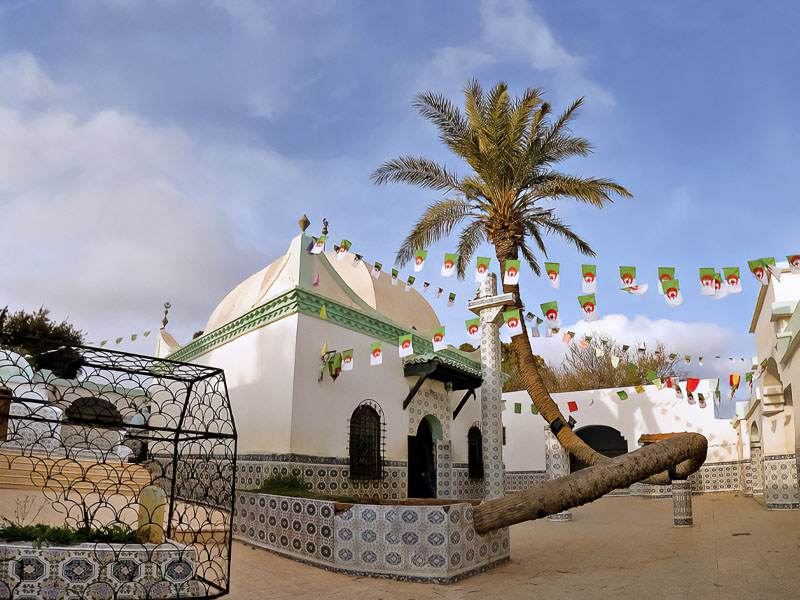A view of folk poet Sidi Al Akhdar ibn Khalluf
Issue 33

By Professor Jalul Duwaji Abdul Qadir
Sidi Al Akhdar ibn Khalluf is a renowned folk poet in North Africa, especially Algeria. He left a huge legacy, most of which is still in the form of manuscripts stored in cupboards and in bags on shelves and in drawers. It is possible that much of his legacy has been lost due to negligence, and that the poetry that has survived was preserved in the collective folk memory and in the memories of interested parties such as Haji Mohammad bin Haj Al Ghouthi Bukhosha, who printed an annotated collection of thirty-one of Sidi Al Akhdar’s poems in 1958.

Sidi Al Akhdar was a great scholar. He memorised the Holy Quran, and studied biographies, Hadith, jurisprudence, literature and history. He was very knowledgeable about Islamic culture and Islamic history, and he attended many seminars on the Quran, Fiqh and Hadith in addition to Quran recitals and interpretation sessions.
The poet spent his youth in Mazagran, which was green and safe. A devout ascetic, when he was 40, the poet left Mazagran with only his knowledge of Fiqh, science, religious culture, literature and history. He settled nearby in a place that is now named after him, and dedicated his life to worship, reading the Quran and repenting for his sins.
The poem ‘Ibqu Bissalamah’ (Be Safe), a brief biography of his life, may have been the last poem he recited. In this poem, he bids farewell to his sons and family, and asks them to behave and to be good to the people around them. He summoned his sons and distributed his legacy and his property to avoid any disputes and to protect his family’s honour.
The poet asked his family to stay united, and to help the poor and the needy. He also asked them to preserve his poetry, and he prayed for all Muslims and people.
According to his poetry, Sidi Al Akhdar ibn Khalluf lived for over 125 years. He witnessed significant events, including the Spanish conquest of his beloved homeland. His love stemmed from pride in the Muslims and Arabs, and his poems reflect his patriotism and resistance.


































































